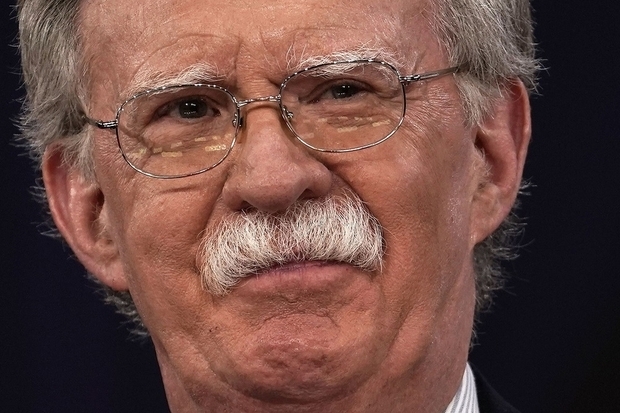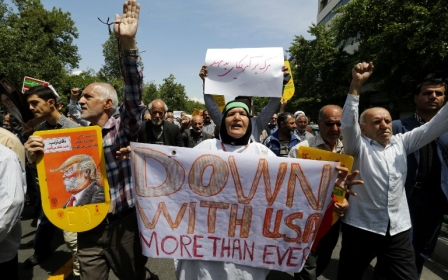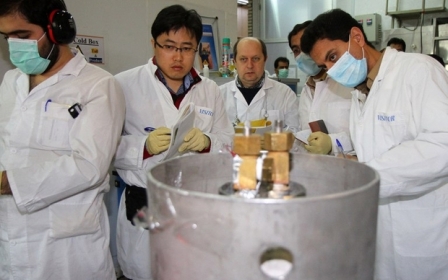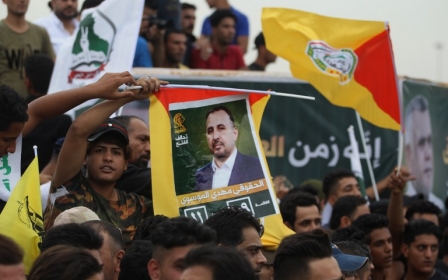US threatens sanctions as other members of Iran nuclear accord stiffen resolve

The United States on Sunday threatened to impose sanctions on European companies that do business with Iran, as the remaining participants in the Iran nuclear accord stiffened their resolve to keep that agreement operational.
White House National Security Adviser John Bolton said US sanctions on European companies that maintain business dealings with Iran were "possible," but Secretary of State Mike Pompeo said he remained hopeful Washington and its allies could strike a new nuclear deal with Tehran.
Bolton struck a more hawkish tone with his comments in an interview with CNN's "State of the Union" programme than Pompeo did when he was interviewed on "Fox News Sunday."
US President Donald Trump on 8 May announced that the United States was withdrawing from a 2015 deal negotiated by the Obama administration.
So far, China, France, Russia, Britain, the European Union and Iran remain in the accord, which placed controls on Iran's nuclear programme and led to a relaxation of US economic sanctions against Iran and companies doing business there.
In spite of the US exit, Britain and Iran on Sunday expressed their commitment to ensuring that the accord is upheld, according to a statement released by British Prime Minister Theresa May's office.
Iranian Foreign Minister Mohammed Javad Zarif, meanwhile, has embarked on a diplomatic tour to try and save the nuclear deal.
Zarif arrived in Beijing on Sunday for the first stop of his tour, ahead of visiting Moscow and Brussels in the coming days.
In Beijing, Zarif said he was hopeful of forging a "clear future design" for the deal to save it from collapse.
"If the nuclear deal is to continue, the interests of the people of Iran must be assured," Zarif added.
A statement on Iran’s parliamentary website said European countries have 60 days to provide "guarantees" to safeguard Iran's interests, quoting an Iranian official:
"The Europeans have between 45 and 60 days to give the necessary guarantees to safeguard Iranian interests and compensate the damages caused by the US pullout," Icana.ir reported.
The website attributed the remarks to Deputy Foreign Minister Abbas Araghchi as reported by Seyyed Hossein Naghavi, spokesman of parliament's foreign affairs commission.
Germany said it will spend the next few months trying to persuade Washington to change its mind.
When asked whether the United States might impose sanctions on European companies that continue to do business with Iran, Bolton told CNN: "It's possible. It depends on the conduct of other governments."
Pompeo said he was "hopeful in the days and weeks ahead we can come up with a deal that really works, that really protects the world from Iranian bad behavior, not just their nuclear program, but their missiles and their malign behavior as well".
The US withdrawal from the Iran deal has upset Washington's European allies, cast uncertainty over global oil supplies and raised the risk of conflict in the Middle East.
Germany's minister for economic affairs, Peter Altmaier, said on Sunday that Berlin will try to "persuade the US government to change its behaviour".
In an interview with ZDF public television, Altmaier noted the United States has set a 90-day deadline for foreign firms to comply with the return of sanctions and that this period can be used to convince Washington to change course.
Israel and Iran engaged in an extensive military exchange on the heels of Trump's decision to leave the deal. On Saturday, French President Emmanuel Macron told Trump in a telephone call that he was worried about stability in the Middle East, according to Macron's office.
As a private citizen, Bolton in the past has suggested that the United States push for a change in Iran's government. But in an interview aired on the ABC's "This Week" programme, Bolton said, "That's not the policy of the administration. The policy of the administration is to make sure that Iran never gets close to deliverable nuclear weapons."
In the CNN interview, Bolton did not respond directly when asked whether Trump might seek "regime change" in Iran, or whether the US military would be ordered to make a preemptive strike against any Iranian nuclear facility.
"I'm not the national security decision-maker," Bolton said, adding that Trump "makes the decision and the advice that I give him is between us."
When pressed by CNN on whether the Trump administration would sanction European firms that continue to do business with Iran, Bolton said, "I think the Europeans will see that it's in their interest ultimately to come along with us."
Bolton said Europe was still digesting Trump's 8 May move.
"I think at the moment there's some feeling in Europe - they're really surprised we got out of it, really surprised at the reimposition of strict sanctions. I think that will sink in; we'll see what happens then," Bolton said.
New MEE newsletter: Jerusalem Dispatch
Sign up to get the latest insights and analysis on Israel-Palestine, alongside Turkey Unpacked and other MEE newsletters
Middle East Eye delivers independent and unrivalled coverage and analysis of the Middle East, North Africa and beyond. To learn more about republishing this content and the associated fees, please fill out this form. More about MEE can be found here.




